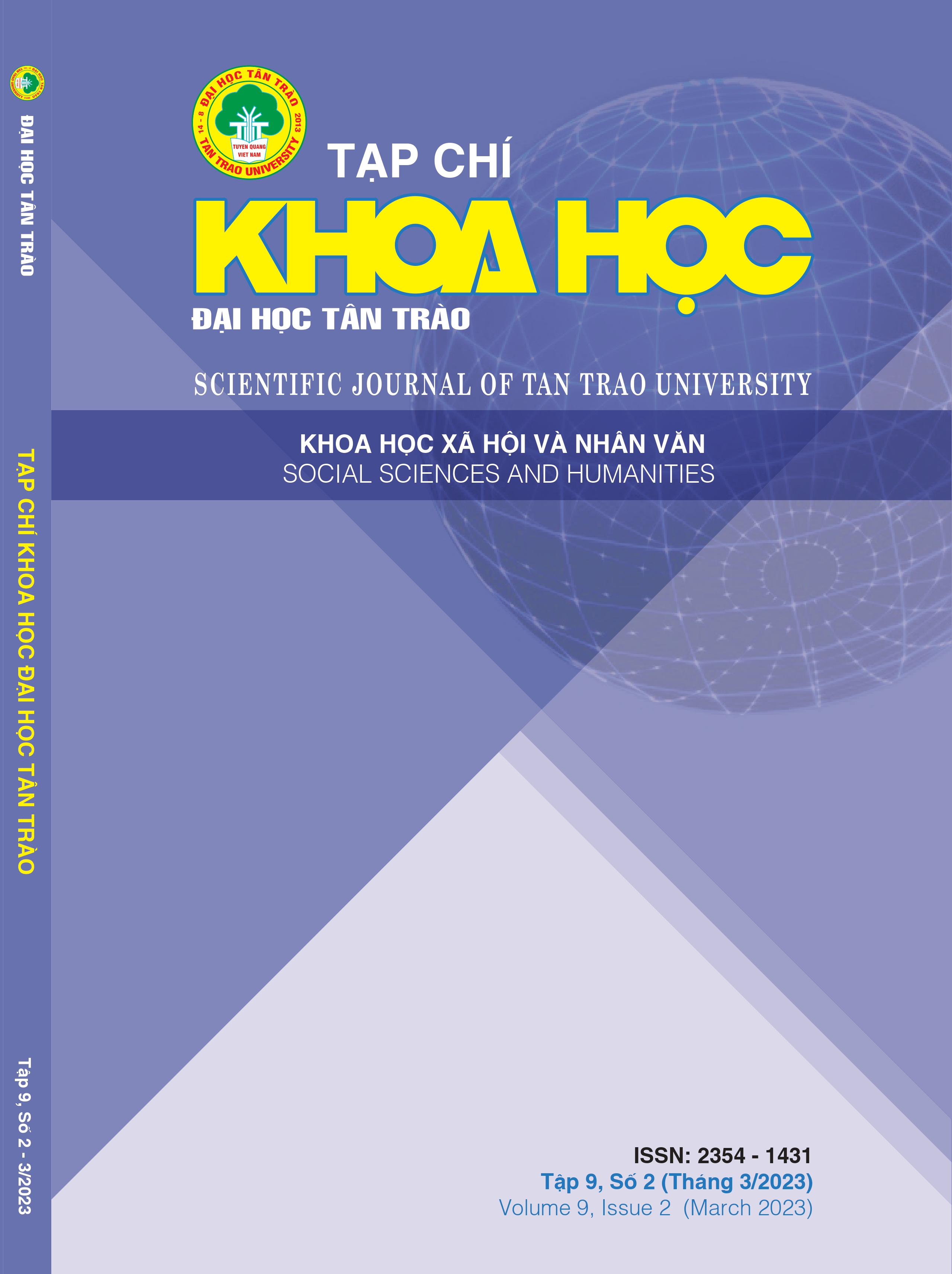QUẢN LÝ HOẠT ĐỘNG ĐÁNH GIÁ KẾT QUẢ HỌC TẬP CỦA HỌC SINH Ở CÁC TRƯỜNG THCS THÀNH PHỐ LÀO CAI, TỈNH LÀO CAI ĐÁP ỨNG YÊU CẦU ĐỔI MỚI GIÁO DỤC
DOI:
https://doi.org/10.51453/2354-1431/2023/909Từ khóa:
Đánh giá kết quả học tập (ĐGKQHT); Chương trình giáo dục phổ thông (CTGDPT); Kế hoạch giáo dục (KHGD).Tóm tắt
Quản lý hoạt động đánh giá kết quả học tập của học sinh ở trường trung học cơ sở đáp ứng yêu cầu đổi mới giáo dục là tác động có kế hoạch, có mục đích,hợp quy luật của chủ thể quản lý đến hoạt động đánh giá kết quả học tập của học sinh ở trường trung học cơ sở nhằm nâng cao hiệu quả quản lý hoạt động, thực trạng quản lý hoạt động đánh giá kết quả học tập của học sinh ở các trường trung học cơ sở thành phố Lào Cai còn tồn tại một số điểm bất cập cần cải tiến nâng cao chất lượng hiệu quả quản lý, các biện pháp quản lý đề xuất sẽ khắc phục những tồn tại đã nêu.
Tải xuống
Tài liệu tham khảo
[1] Central Committee (2013), Resolution No. 29-NQ/TW) on Fundamental and comprehensive renovation of education and training.
[2] Chinh N.D. (2004), Measuring and evaluating apprentice learning outcomes, Teaching materials, Faculty of Education, Vietnam National University, Hanoi.
[3] Ha L.T.M. (2012), Developing a process to assess the learning outcomes of lower secondary students, Doctoral Thesis in Educational Management, Hanoi National University of Education.
[4] Ministry of Education and Training (2018), General education program 2018 buried with Circular 32/2018/TT-MOET.
[5] Ministry of Education and Training (2021), Circular No. 22/2021/TT-MOET dated July 20, 2021 of the Minister of Education and Training on Regulations on assessment of academy and great school students.
[6] Ministry of Education and Training (2014), Training standard for teaching and determine learning outcomes with the assimilation of growing high school students' ability, Hanoi.
Tải xuống
Đã Xuất bản
Cách trích dẫn
Số
Chuyên mục
Giấy phép

Tác phẩm này được cấp phép theo Giấy phép Quốc tế Creative Commons Attribution-ShareAlike 4.0 .
Bài báo được xuất bản ở Tạp chí Khoa học Đại học Tân Trào được cấp phép theo giấy phép Ghi công - Chia sẻ tương tự 4.0 Quốc tế (CC BY-SA). Theo đó, các tác giả khác có thể sao chép, chuyển đổi hay phân phối lại các bài báo này với mục đích hợp pháp trên mọi phương tiện, với điều kiện họ trích dẫn tác giả, Tạp chí Khoa học Đại học Tân Trào và đường link đến bản quyền; nêu rõ các thay đổi đã thực hiện và các nghiên cứu đăng lại được tiến hành theo cùng một bản quyền.
Bản quyền bài báo thuộc về các tác giả, không hạn chế số lượng. Tạp chí Khoa học Tân Trào được cấp giấy phép không độc quyền để xuất bản bài báo với tư cách nhà xuất bản nguồn, kèm theo quyền thương mại để in các bài báo cung cấp cho các thư viện và cá nhân.
Mặc dù các điều khoản của giấy phép CC BY-SA không dành cho các tác giả (với tư cách là người giữ bản quyền của bài báo, họ không bị hạn chế về quyền hạn), khi gửi bài tới Tạp chí Khoa học Đại học Tân Trào, tác giả cần đáp ứng quyền của độc giả, và cần cấp quyền cho bên thứ 3 sử dụng bài báo của họ trong phạm vi của giấy phép.






